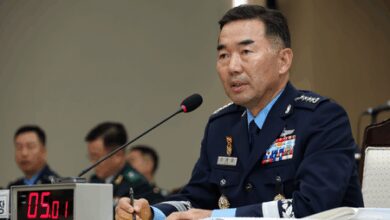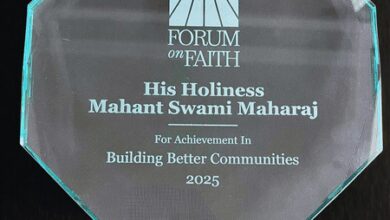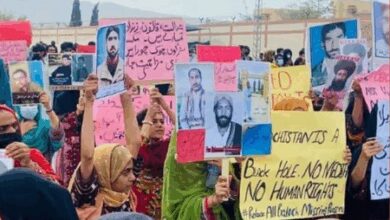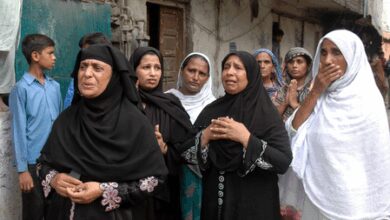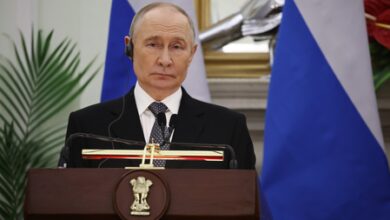Indian envoy calls on Nauru President, reaffirms commitment to deepen ties
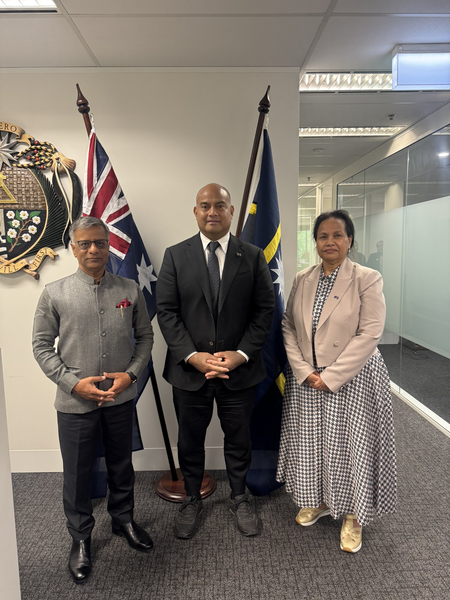
Canberra, Nov 11 (IANS) India’s High Commissioner to Australia, Gopal Baglay on Tuesday called on Nauru President David W R Adeang in Canberra to reaffirm India’s commitment to supporting Nauru’s development journey and strengthening cooperation across various sectors.
In a statement shared on X, Indian High Commission in Australia stated, “Privileged to call on H.E. David W.R. Adeang, Hon’ble President of the Republic of Nauru today in Canberra. India remains committed to supporting Nauru’s development journey and deepening cooperation across sectors.”
In January, External Affairs Minister (EAM) S Jaishankar extended wishes to his Nauru counterpart Lionel Rouwen Aingimea and people of the country on their Independence Day and stated that he looked forward to further strengthening ties in the Indo-Pacific.
“Warm greetings to FM Lionel Rouwen Aingimea, the Government and the people of the Republic of Nauru on their Independence Day. Look forward to further strengthening our friendship in the Indo-Pacific,” the EAM wrote in a post on X.
In November 2024, India sent second consignment of ‘Haemo-Dialysis machines with portable RO Units’ to Nauru, Marshall Islands, Samoa, Solomon Islands.
“Standing together with the Pacific Islands Family. Fulfilling India’s commitment made at FIPIC III Summit, the 2nd consignment of ‘Haemo-Dialysis machines with portable RO Units.’ 03 units to Republic of Marshall Islands, 01 unit to Independent State of Samoa, 01 unit to Solomon Islands, 01 unit to Republic of Nauru have departed from India. This assistance will help strengthen the healthcare system of Marshall Islands, Samoa, Solomon Islands, and Nauru,” the MEA spokesperson posted on X then.
India’s bilateral ties with Nauru are cordial and friendly. India is a strong development partner, and its assistance is well-recognised in Nauru. The island nation has special regard for India as New Delhi first proposed for Nauru’s independence in the United Nations in early 1960s that was supported by the then Union of Soviet Socialist Republics (USSR), according to the MEA.
–IANS
akl/as

